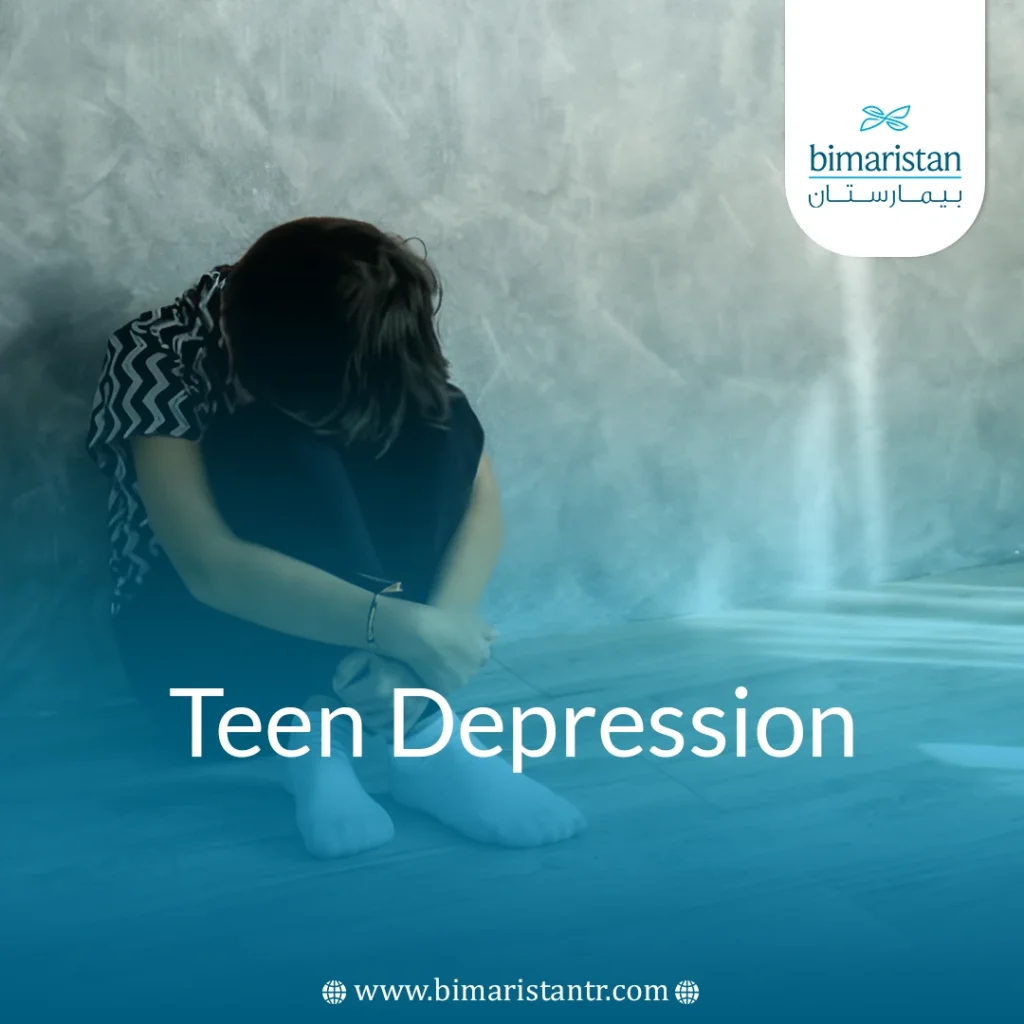Teen depression is not just a passing phase of sadness, but a serious mental health condition that can impact thinking, behavior, social connections, and academic performance. Early identification of symptoms and timely professional intervention are essential, as therapy and family involvement can significantly improve a teen’s well-being.
What is teen depression?
Teen depression is a serious psychological issue that causes a persistent feeling of sadness and loss of interest in activities. It affects how a teenager thinks, feels, and behaves, and can cause emotional, functional, and physical problems that affect school performance and social relationships. In some cases, it may also lead to thoughts of suicide or self-harm. Although depression can occur at any age, the symptoms may differ between teens and adults.

Symptoms of teen depression
Signs and symptoms of teen depression include changes in previous behaviors or attitudes, including:
Emotional changes
Emotional changes include:
- Feelings of sadness, which can include bouts of crying for no apparent reason
- Frustration or feelings of anger, even about small things
- Feelings of hopelessness or emptiness
- Nervous or irritable mood
- Loss of interest or enjoyment in usual activities
- Loss of interest or conflict with family and friends
- Low self-esteem
- Feelings of worthlessness or guilt
- Focusing on past failures, excessive self-blame, or self-criticism
- Extreme sensitivity to rejection or failure, and the need for excessive reassurance
- Difficulty thinking, concentrating, making decisions, and remembering things
- Constantly feeling that life and the future are bleak and gloomy
- Recurring thoughts of death, dying, or suicide
Behavioral changes
Watch for behavioral changes such as:
- Planning or attempting suicide
- Fatigue and loss of energy
- Insomnia or oversleeping
- Changes in appetite, such as loss of appetite and weight, or increased cravings for food and weight gain
- Alcohol or drug abuse
- Agitation or restlessness, such as rapid movement, hand twisting, or inability to sit still
- Slow thinking, speaking, or body movements
- Frequent complaints of body aches and headaches for no apparent reason, which may include frequent visits to the school nurse
- Social isolation
- Poor academic performance or frequent absences from school
- Lack of interest in personal hygiene or appearance
- Tantrums, disruptive or dangerous behavior, or other neurotic acting-out behaviors
- Self-harm, such as cutting or burning
Causes of teen depression
Many issues may be related to teen depression. These include the following:
- Biological agents
- Brain Chemistry: Neurotransmitters are natural chemicals in the brain that transmit signals to other areas of the brain and the body. When these chemicals are imbalanced or damaged, it can disrupt nerve receptor function and the overall nervous system, leading to depression.
- Hormones: Changes in the body’s hormonal balance can cause or trigger depression.
- Psychological factors: Traumatic events in early childhood, such as physical abuse, emotional abuse, or the loss of a parent, can cause changes in the brain that increase the risk of depression.
- Social factors: Problems with relationships with family or friends, being bullied, or feeling socially isolated are associated with negative thinking patterns. Teen depression may be associated with learning to feel helpless, rather than learning to feel empowered to find solutions to life’s challenges.
It is important to note that depression may be the result of a complex interaction between all of these factors, rather than just one.
Diagnosing teen depression
- A clinical interview conducted by a doctor or psychologist: Assesses the teen’s feelings and behavior.
- Using questionnaires or psychological tests to assess symptoms: These measure the severity of symptoms and the extent to which they affect the teen’s daily life.
- Parental or school observation: These observations help in the early diagnosis of depression.
- Rule out any other medical causes: This is to ensure there are no other diseases with similar symptoms.
How can teen depression be prevented?
There is no surefire way to prevent depression, so some tips to help prevent teenage depression in children include:
- Taking steps to manage stress, increase resilience, and boost self-esteem to help deal with issues as they arise
- Practicing self-care, such as establishing a healthy sleep routine, rationalizing the use of electronic devices, and using them responsibly
- Seeking support from friends and acquaintances, especially in times of crisis
- Getting treatment at the first signs of depression to help prevent it from worsening
- Consistently taking prescribed medication, if recommended by your doctor, even after your symptoms have improved, to prevent recurrence of depressive symptoms
When should I consult a doctor?
- Warning signs that require urgent medical intervention: Talking about or thinking about suicide, self-harm, or severe behavioral changes.
- The importance of continued follow-up: Even after symptoms improve, it is recommended to follow up with specialists to stabilize the condition and prevent relapse.
In conclusion, teen depression is a mental health condition that requires awareness from parents and society, as early diagnosis, proper treatment, and psychosocial support play a vital role in improving the adolescent’s quality of life and reducing potential complications. If concerning signs appear, consult a doctor or mental health professional without any delay.
- National Institute of Mental Health (NIMH). (n.d.). Major depression statistics. Retrieved from
- Substance Abuse and Mental Health Services Administration (SAMHSA). (n.d.). National helpline. Retrieved from
